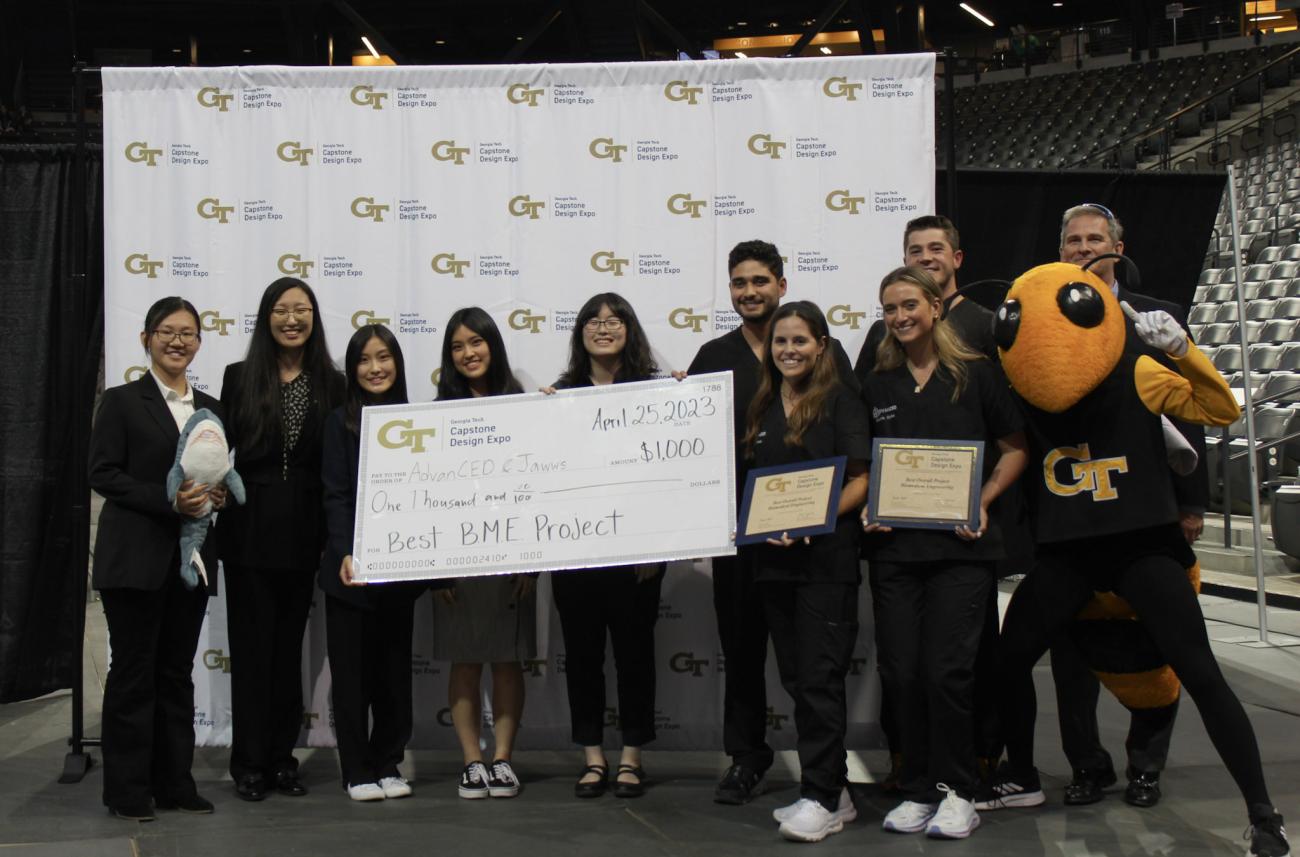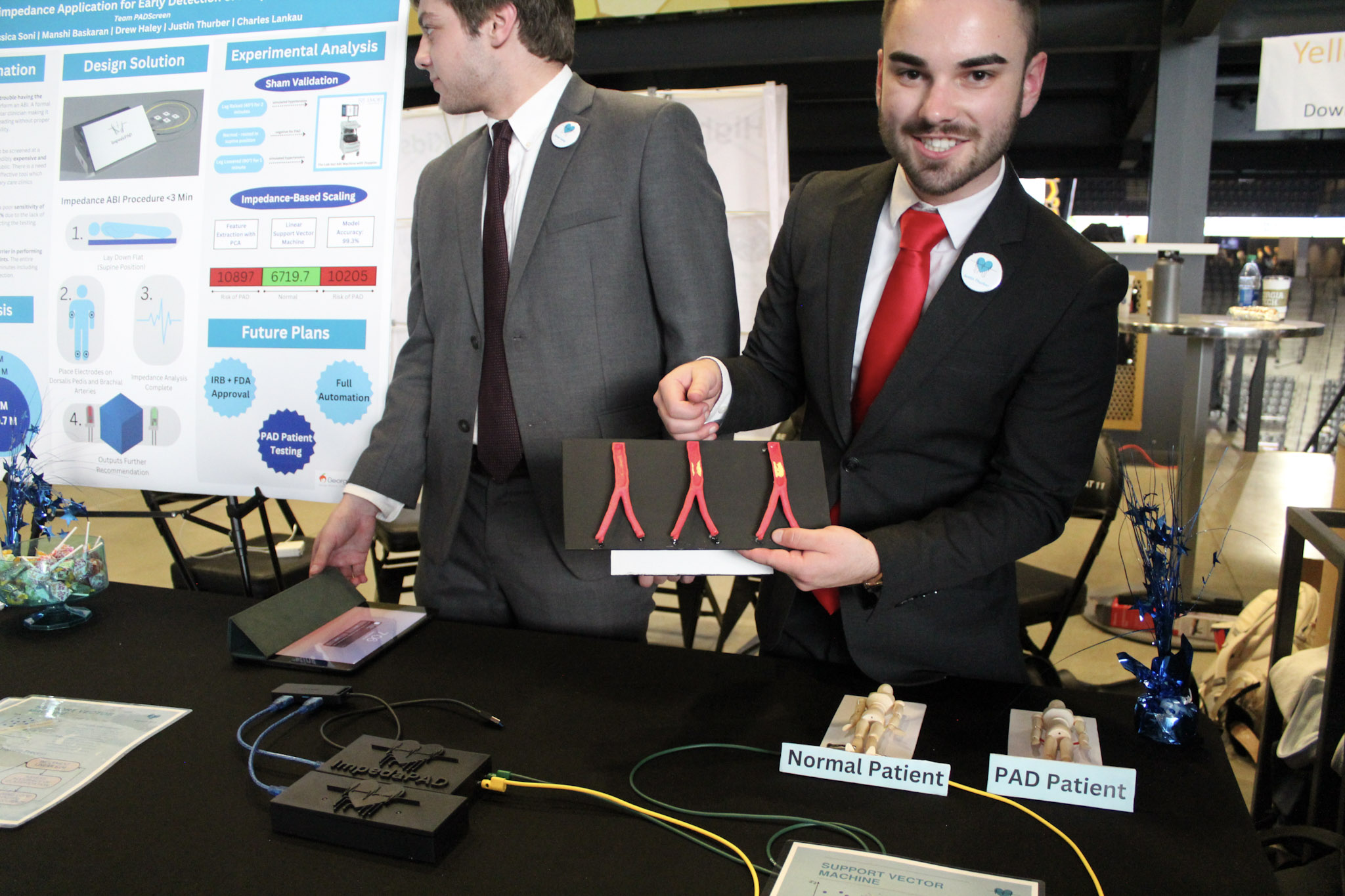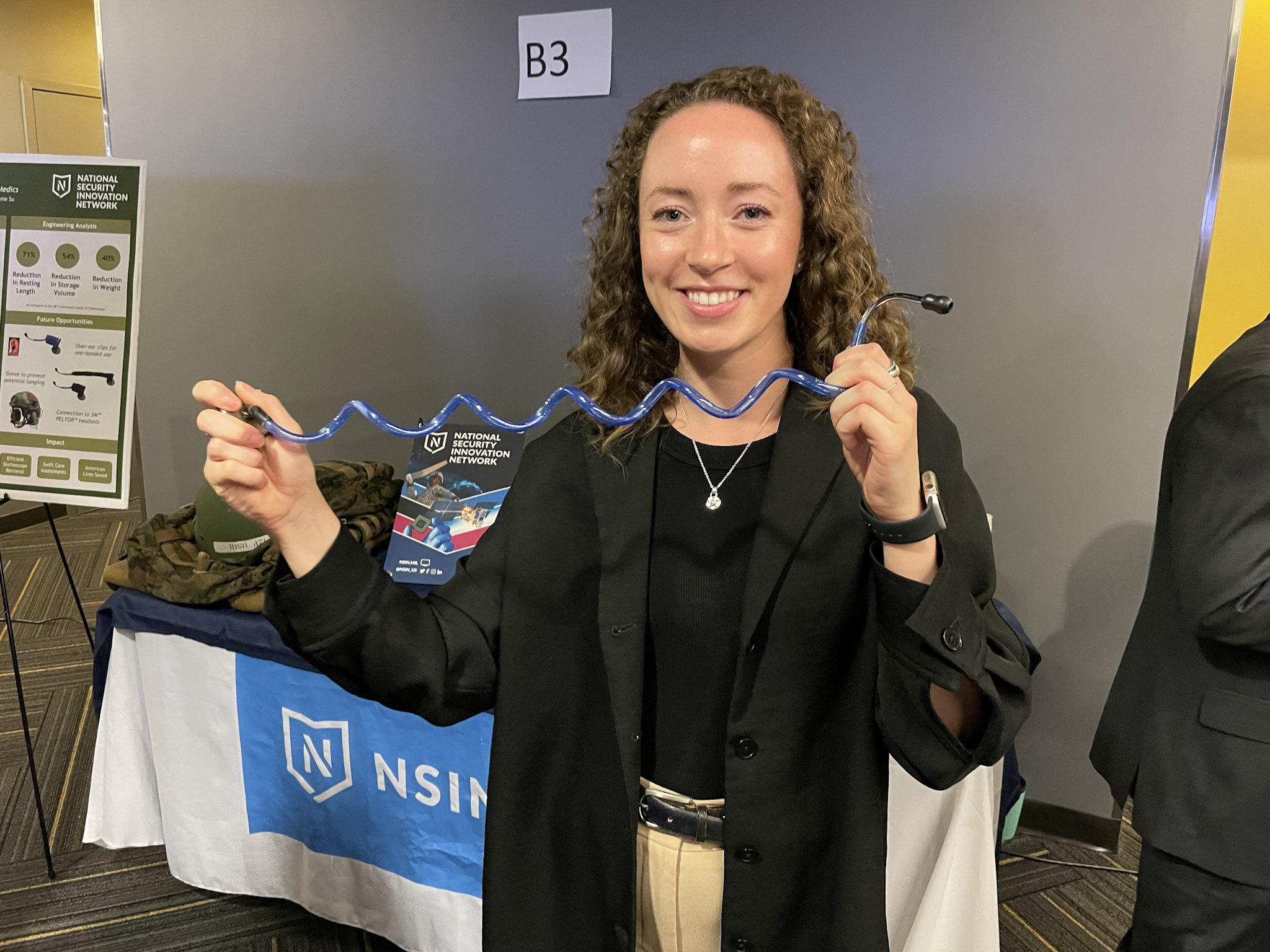Two projects designed to help clinicians operating on the human skull won best project awards in the Wallace H. Coulter Department of Biomedical Engineering at the Capstone Expo, Tuesday at McCamish Pavilion on the Georgia Tech campus.
A team of four BME students called AdvanCED, sponsored by the Mayo Clinic, developed an implantable device for the safe, efficient delivery of cell therapies to the brain to treat brain tumors. And a team of five women called Jawws designed a tool for maxillofacial surgeons to measure the correct screw length for mandibular bony fixations, designed to minimize post-operative complications.
Also, for the first time there was a shout-out for honorable mention teams from each department or school. In BME, the five-person team of PAD Screen earned honorable mention for their portable automatic screening device to detect early onset peripheral arterial disease. The tool uses bioimpedance analysis technology and can assist physicians with providing patients a recommendation for further diagnosis.
“The challenge was being able to actually see the problem, and we had the privilege of actually observing the conditions in a Grady surgical room,” said Ruiyang Zhao, one of the Jawws team members. Her teammates were Qingyu Chen, Xinyu Chen, Yunha Ham, and Yunseo Ham.
Meanwhile, AdvanCED addressed the problem of administering cell therapies to patients with glioma, a wide-ranging kind of brain tumor that includes glioblastoma, which is highly malignant and typically requires surgical removal, chemotherapy, and radiation. Because these tumors usually are not completely removed, there is a 90% recurrence rate. While implantable devices currently exist for the delivery of therapeutics, there is no such thing for the delivery of advanced cell therapies to the brain for gliomas.
“Initial administration of the cells is done in the operating room the first time they cut the tumor out,” said Mateo Golloshi, whose teammates on AdvanCED are Isabella Varea, Juan Martinez, and Victoria Kabat. “If another dose is required, they have to open up the patient again. Neurosurgeons currently don’t have a recurrent, minimally invasive option to administer the cell therapy.”
So, the team developed LifeSTEM, which uses a multi-chamber reservoir for the targeted, local delivery of cell therapies, with a guiding sleeve and customizable catheters, to account for the variability of tumor location and patient anatomy.
In all, there were 191 teams of undergraduate students throughout the arena, including 31 BME teams, taking part in the Expo. BME students addressed the usual dizzying array of problems with creative solutions. Stealthoscope developed a condensed stethoscope for military healthcare personnel operating in the field. Insight created an illuminated nasal speculum that allows for increased visibility into the nasal cavity. Hassle-Free TSA optimized a patient-specific implant to treat severe shoulder wear and tear. And a team called Eye.See.U developed a contact lens applicator for people with quadriplegia.
Every semester, the Capstone Expo showcases senior engineering student projects designed to solve a specific challenge or problem, and for many students, it’s a sample size of the future.
“Capstone has been like a microcosm of what to expect if you design products and devices for the healthcare industry,” noted Adam Sumilong of the Eye.See.U team. “It’s great foundational training.”
Latest BME News
Jo honored for his impact on science and mentorship
The department rises to the top in biomedical engineering programs for undergraduate education.
Commercialization program in Coulter BME announces project teams who will receive support to get their research to market.
Courses in the Wallace H. Coulter Department of Biomedical Engineering are being reformatted to incorporate AI and machine learning so students are prepared for a data-driven biotech sector.
Influenced by her mother's journey in engineering, Sriya Surapaneni hopes to inspire other young women in the field.
Coulter BME Professor Earns Tenure, Eyes Future of Innovation in Health and Medicine
The grant will fund the development of cutting-edge technology that could detect colorectal cancer through a simple breath test
The surgical support device landed Coulter BME its 4th consecutive win for the College of Engineering competition.










